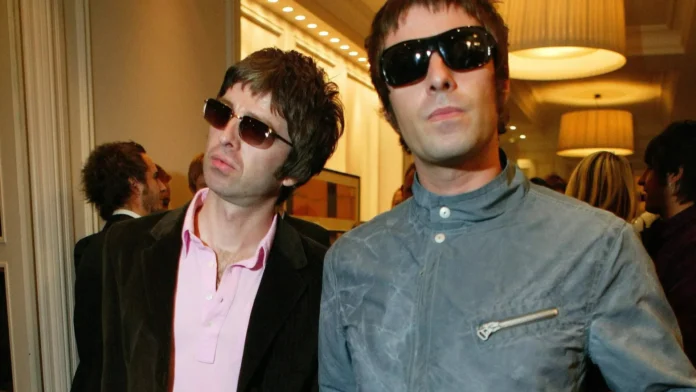Introduction
The question “when did Oasis last play Wembley” continues to echo among fans of the Manchester band who shaped British rock in the 1990s and beyond. Oasis, fronted by Liam and Noel Gallagher, built their reputation on both anthemic records and unforgettable live shows. To When Did Oasis Last Play Wembley Stadium is to stand at the summit of British music, and for Oasis, those nights were defining moments that sealed their place in history. The atmosphere, the songs, and the sheer cultural weight of those concerts mean they are remembered as more than just gigs—they were generational events. In this article, we’ll revisit when Oasis last played Wembley, look at the story behind those performances, and explore why their legacy at the stadium still resonates more than two decades later.
Oasis and Wembley: Why It Matters
Few venues in the world carry the prestige of Wembley Stadium. For British artists, a Wembley show is the ultimate stamp of success—a space reserved for legends like Queen, Michael Jackson, and later Coldplay and Adele. Oasis’ journey from the pubs of Manchester to Wembley’s grand stage was nothing short of extraordinary.
By the time they booked Wembley, When Did Oasis Last Play Wembley were not just a band; they were cultural icons. The Britpop movement, which they spearheaded, was at its peak, and the Gallagher brothers had become symbols of a working-class dream fulfilled. Playing Wembley wasn’t just about music—it was about proving that a group of lads from Burnage could take on the world and win.
When Did Oasis Last Play Wembley?
The last time When Did Oasis Last Play Wembley Stadium was in July 2000, during their Standing on the Shoulder of Giants tour. They performed two consecutive nights—21st and 22nd July 2000—to crowds of around 70,000 fans each night.
These were not just ordinary concerts. They represented the culmination of a turbulent but extraordinary decade for Oasis. Coming off the global success of Morning Glory and Be Here Now, and in the wake of line-up changes and internal tensions, these Wembley shows were both a celebration and, in many ways, a closing chapter.
The Legendary July 2000 Wembley Concerts
The Wembley gigs of July 2000 remain etched in the memory of every fan who attended—or even those who later watched the official Familiar to Millions live recording released that year.
Key highlights from the shows included:
- Setlists packed with anthems: From Rock ’n’ Roll Star and Supersonic to Wonderwall, Don’t Look Back in Anger, and Champagne Supernova.
- A massive audience: Approximately 140,000 fans across the two nights, making them among the biggest When Did Oasis Last Play Wembley shows outside of Knebworth.
- Atmosphere charged with emotion: These gigs were seen as a reaffirmation that Oasis could still command stadiums despite critical questions about their newer material.
The band may have been experiencing internal struggles, but on stage at Wembley, they appeared united by the power of their songs and the devotion of their fans.
The Role of the Wembley Shows in Oasis’ Career
To fully appreciate the significance of Wembley, it helps to place it alongside Oasis’ other landmark concerts. Knebworth 1996 remains the most mythologised, with 250,000 fans across two nights. Maine Road 1996 was a hometown triumph. But Wembley carried its own symbolism—it was the spiritual home of British music, and performing there was a career milestone.
Unlike Knebworth, which celebrated their meteoric rise, Wembley 2000 came during a more fragile period. With founding members like Bonehead and Guigsy gone, Oasis were in transition. Yet the sheer scale of Wembley proved they were still the people’s band. It was proof that, even with the critics doubting, When Did Oasis Last Play Wembley could still fill the biggest venue in the country.
Behind the Scenes: The Making of Wembley Magic
The Wembley gigs didn’t happen by accident. Planning for such massive concerts involved months of logistics, stage design, and technical coordination. The stage was a towering structure adorned with striking visuals, and the sound system was engineered to carry Liam’s vocals and Noel’s guitar riffs to every corner of the stadium.
But behind the professionalism was chaos. Tensions between Noel and Liam were well-documented, and their strained relationship added a sense of unpredictability to the shows. Fans didn’t just come for the music—they came for the drama, the attitude, and the chance to witness rock and roll theatre in its purest form.
Fans’ Perspective: Stories from the Stands
For fans, those nights in July 2000 were unforgettable. Many described the journey to Wembley as a pilgrimage, queuing for hours just to get close to the stage. The moment Liam swaggered out and growled the opening lines of Rock ’n’ Roll Star, the stadium erupted.
One fan recalled: “It felt like the last great When Did Oasis Last Play Wembley moment, where you knew you were part of something bigger than yourself. Singing ‘Don’t Look Back in Anger’ with 70,000 voices around you was spiritual.”
These testimonials highlight what made Wembley so special—it wasn’t just a gig; it was collective memory-making.
Legacy of the Wembley Concerts
The Wembley shows cemented Oasis’ reputation as one of the greatest live bands in British history. They may not have matched the mythology of Knebworth, but for many fans, Wembley was more personal—a sign that Oasis could still rise above turmoil and deliver unforgettable performances.
The gigs were immortalised in the Familiar to Millions live album and DVD, which captured the raw power of When Did Oasis Last Play Wembley. To this day, those recordings serve as a reminder of what the band meant to a generation.
What Happened After Wembley?
After the Wembley triumph, Oasis continued touring, but the cracks were widening. Their 2002 album Heathen Chemistry produced hits like Stop Crying Your Heart Out, but internal conflicts persisted. By 2009, Noel Gallagher walked away, effectively ending the band.
Looking back, Wembley feels symbolic: a grand finale before the slow disintegration of one of Britain’s most important bands.
Comparing Oasis’ Wembley Gigs to Modern Shows
Today, artists like Coldplay, Ed Sheeran, and Harry Styles sell out Wembley multiple nights in a row. Yet many argue that Oasis’ Wembley gigs remain unmatched in intensity. Modern shows may boast advanced production, light displays, and pyrotechnics, but they rarely capture the raw, chaotic spirit of Oasis in 2000.
For fans, it wasn’t about perfection—it was about passion, attitude, and the sense of witnessing rock and roll history.
Could Oasis Ever Return to Wembley?
This is the million-pound question. Rumours of an Oasis reunion have persisted for years, fuelled by occasional comments from Liam and Noel. While Liam has expressed openness to reforming, Noel remains hesitant.
If Oasis were ever to reunite, Wembley would undoubtedly be the venue of choice. The idea of the Gallagher brothers reclaiming that stage still excites fans across the world. Until then, the memory of July 2000 remains their Wembley legacy.
FAQs About Oasis and Wembley
When Did Oasis Last Play Wembley Stadium?
Oasis last played Wembley on 21st and 22nd July 2000 during their Standing on the Shoulder of Giants tour.
How many people attended Oasis’ Wembley gigs?
Around 70,000 fans per night, totalling roughly 140,000 across the two concerts.
Were the Wembley shows bigger than Knebworth?
No. Knebworth in 1996 attracted 250,000 across two nights, but Wembley carried its own cultural weight.
Is there official footage of the concerts?
Yes. Oasis released Familiar to Millions, a live album and DVD, capturing highlights of the Wembley shows.
Could When Did Oasis Last Play Wembley again if they reunited?
Absolutely. A reunion would almost certainly include Wembley, given its symbolic importance.
Conclusion: The Lasting Power of Oasis at Wembley
So, When Did Oasis Last Play Wembley? The answer takes us back to July 2000, two unforgettable nights when 140,000 fans sang their hearts out with the Gallagher brothers. More than two decades later, those gigs remain a defining moment in British rock history—an era when Oasis could still unite a generation under the lights of the country’s most iconic stadium.
For fans, Wembley wasn’t just about music; it was about belonging, identity, and the belief that working-class heroes from Manchester could conquer the world.

